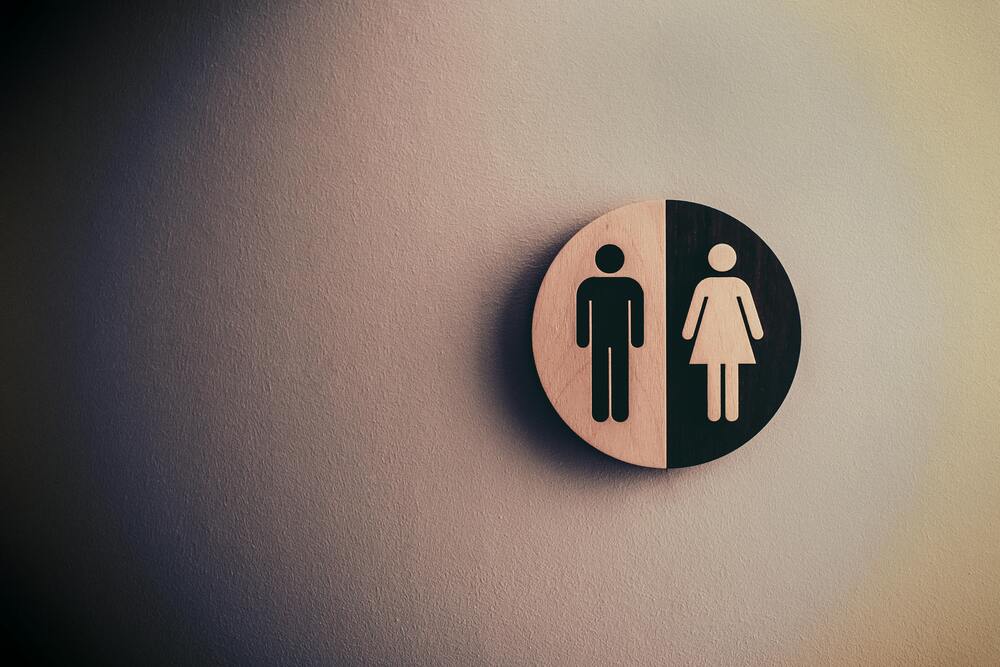Anxiety is a complex condition that can have numerous effects on the body. One area that is often impacted by anxiety is the bladder and bowel. Understanding the connection between anxiety and your body is crucial in order to find effective ways to manage and alleviate these symptoms.
Understanding the Connection Between Anxiety and Your Body
Anxiety is a mental health disorder characterized by feelings of worry, fear, and a heightened stress response. These emotions can trigger physical symptoms throughout the body, including the bladder and bowel. To grasp why anxiety affects these areas, it’s important to understand the role of the nervous system in anxiety.
Anxiety is a complex condition that involves both psychological and physiological factors. It is not simply a matter of feeling anxious; it also involves a cascade of reactions within the body. The nervous system, which is responsible for transmitting signals between different parts of the body, plays a key role in anxiety.
The Role of the Nervous System in Anxiety
The nervous system plays a key role in anxiety. When faced with a stressful or threatening situation, the body’s fight-or-flight response is activated. This response is governed by the autonomic nervous system, which controls bodily functions that are not under conscious control, such as heart rate, breathing, and digestion.
The autonomic nervous system is divided into two branches: the sympathetic nervous system and the parasympathetic nervous system. The sympathetic nervous system is responsible for activating the fight-or-flight response, while the parasympathetic nervous system helps to restore the body to a state of calm after the threat has passed.
Anxiety can cause the autonomic nervous system to go into overdrive, leading to an increased release of stress hormones, such as adrenaline and cortisol. These hormones can have physical effects on the body, including the bladder and bowel.
The Impact of Stress Hormones on the Body
Stress hormones can disrupt the normal functioning of the bladder and bowel. For instance, increased adrenaline levels can cause the muscles surrounding the bladder to contract, leading to a frequent urge to urinate. Similarly, cortisol can affect the digestive system, leading to changes in bowel movements.
It is important to note that the impact of stress hormones on the body can vary from person to person. Some individuals may experience increased urinary frequency, while others may have difficulty emptying their bladder. Similarly, some individuals may experience diarrhea, while others may experience constipation.
These physical responses can be distressing and often exacerbate underlying anxiety, creating a vicious cycle of symptoms. The fear of experiencing these physical symptoms can further contribute to anxiety, leading to a continuous loop of worry and bodily reactions.
Managing anxiety and its impact on the body requires a comprehensive approach that addresses both the psychological and physiological aspects of the condition. This may involve therapy, medication, lifestyle changes, and stress management techniques.
By understanding the connection between anxiety and the body, individuals can gain insight into their symptoms and work towards finding effective strategies for managing their anxiety and improving their overall well-being.
Anxiety and Its Effects on the Bladder
When anxiety takes hold, it can manifest in various ways within the bladder. Understanding the symptoms and long-term consequences of anxiety-induced bladder issues is important for managing this aspect of anxiety.
Anxiety is a complex mental health condition that affects millions of people worldwide. It can cause a range of physical and psychological symptoms, including those related to bladder function. The connection between anxiety and the bladder is not well understood, but research suggests that stress hormones released during periods of anxiety can have a direct impact on the muscles and nerves that control bladder function.
Symptoms of Anxiety-Induced Bladder Issues
Individuals experiencing anxiety-related bladder issues may notice an increased frequency and urgency to urinate. This is due to the hyperactivity of the bladder muscles caused by stress hormones. The body’s fight-or-flight response, triggered by anxiety, can lead to a heightened state of alertness and sensitivity, making the bladder more reactive to even small amounts of urine. As a result, individuals may feel the need to empty their bladder more frequently, even if it contains only a small volume of urine.
In addition to increased frequency, some individuals may experience pain or discomfort during urination, which can further exacerbate anxiety. This pain may be caused by inflammation of the bladder lining, known as cystitis, which can be triggered or worsened by stress. The combination of physical discomfort and emotional distress can create a vicious cycle, where anxiety leads to bladder issues, which in turn increases anxiety levels.
Long-Term Consequences for the Bladder
If left unmanaged, anxiety-induced bladder issues can have long-term consequences. The constant strain on the bladder muscles can lead to muscle weakness and reduced capacity. Over time, this can result in permanent changes to bladder function, making it more difficult to fully empty the bladder and increasing the risk of urinary retention.
Furthermore, the heightened sensitivity of the bladder caused by anxiety can increase the risk of developing urinary tract infections (UTIs). When the bladder muscles are constantly in a state of hyperactivity, it becomes easier for bacteria to enter and multiply in the urinary tract, leading to infections. UTIs can cause a range of uncomfortable symptoms, including pain, burning sensation during urination, and a frequent urge to urinate.
It is important for individuals experiencing anxiety-induced bladder issues to seek appropriate medical and psychological support. Treatment options may include therapy to manage anxiety symptoms, medications to alleviate bladder discomfort, and lifestyle modifications such as stress reduction techniques and bladder training exercises.
In conclusion, anxiety-induced bladder issues can significantly impact an individual’s quality of life. Understanding the symptoms and long-term consequences of these issues is crucial for effective management. By addressing both the underlying anxiety and the bladder symptoms, individuals can find relief and regain control over their bladder function.
How Anxiety Influences Bowel Movements
Similar to its impact on the bladder, anxiety can also affect bowel movements. Being aware of anxiety-related bowel problems and their link to conditions such as irritable bowel syndrome (IBS) is crucial for addressing these issues.
When anxiety takes hold, it can wreak havoc on various bodily functions, including the digestive system. The intricate connection between the brain and the gut becomes apparent as anxiety disrupts the normal rhythm of bowel movements. It’s like a domino effect, where the mind’s unrest triggers a cascade of physiological responses, ultimately affecting the digestive process.
Recognizing Anxiety-Related Bowel Problems
Individuals with anxiety may experience changes in bowel habits, including diarrhea, constipation, or a mix of both. These symptoms often occur alongside feelings of abdominal discomfort or pain. The connection between anxiety and bowel issues is closely related to the nervous system’s response to stress hormones.
When anxiety strikes, the body’s fight-or-flight response kicks in, releasing stress hormones such as cortisol and adrenaline. These hormones, designed to prepare the body for immediate action, can disrupt the normal functioning of the digestive system. The increased levels of cortisol can lead to heightened sensitivity in the gut, causing spasms and irregular contractions that result in diarrhea or constipation.
Moreover, anxiety can also affect the balance of bacteria in the gut, known as the gut microbiota. Research suggests that alterations in the gut microbiota composition can contribute to gastrointestinal symptoms, further exacerbating anxiety-related bowel problems.
The Link Between Anxiety and Irritable Bowel Syndrome
Irritable bowel syndrome is a common digestive disorder that is often associated with anxiety. The exact cause of IBS is still not fully understood, but stress and anxiety are known to play a significant role in triggering and worsening symptoms. Managing anxiety can help alleviate the impact it has on the bowel and reduce IBS symptoms.
IBS is characterized by a combination of symptoms, including abdominal pain, bloating, and changes in bowel habits. The relationship between anxiety and IBS is complex, as both conditions can exacerbate each other. Anxiety can heighten the sensitivity of the gut, making it more prone to IBS symptoms, while the discomfort and unpredictability of IBS can trigger anxiety and perpetuate a vicious cycle.
It is important to note that not everyone with anxiety will develop IBS, and not everyone with IBS will have anxiety. However, the overlap between the two conditions is significant, highlighting the importance of addressing anxiety as part of managing IBS symptoms.
Fortunately, there are various strategies to manage anxiety and its impact on bowel movements. These may include relaxation techniques, such as deep breathing exercises and meditation, as well as therapy and medication options. By addressing anxiety, individuals can regain control over their bowel movements and improve their overall quality of life.
Coping Mechanisms for Anxiety-Related Bladder and Bowel Issues
While anxiety can have debilitating effects on the bladder and bowel, there are coping mechanisms that can help alleviate these symptoms. Both lifestyle changes and medical treatments can be effective in managing anxiety-related bladder and bowel issues.
Lifestyle Changes to Alleviate Symptoms
Implementing healthy lifestyle changes can have a positive impact on anxiety-related bladder and bowel problems. Regular exercise, maintaining a balanced diet, getting enough sleep, and practicing stress management techniques can all contribute to reducing anxiety symptoms and improving overall bladder and bowel function.
Medical Treatments and Therapies
In some cases, medical treatments and therapies may be necessary to manage anxiety-related bladder and bowel issues. These can range from medications to relax the muscles of the bladder or bowel, to therapy such as cognitive-behavioral therapy (CBT) to address the underlying anxiety and stress.
Preventing Anxiety-Related Bladder and Bowel Problems
Prevention is always better than cure. Taking proactive steps to manage stress and anxiety can help prevent or minimize anxiety-related bladder and bowel issues. Simple stress management techniques and regular check-ups are essential for maintaining overall health and preventing the exacerbation of symptoms.
Stress Management Techniques
Developing effective stress management techniques is key to preventing anxiety-related bladder and bowel problems. This may involve practices such as deep breathing exercises, meditation, yoga, or seeking professional help from therapists specializing in anxiety disorders.
Importance of Regular Check-ups and Monitoring
Regular check-ups with healthcare professionals are essential for monitoring and managing anxiety-related bladder and bowel problems. These check-ups can help identify any underlying medical conditions, track the progress of symptoms, and ensure appropriate treatment and support are provided.
In conclusion, anxiety profoundly affects the bladder and bowel. Understanding the connection between anxiety and your body is the first step towards finding effective solutions. By implementing lifestyle changes, accessing medical treatments and therapies, and proactively managing stress, individuals can find relief from anxiety-related bladder and bowel issues and improve their overall quality of life.






